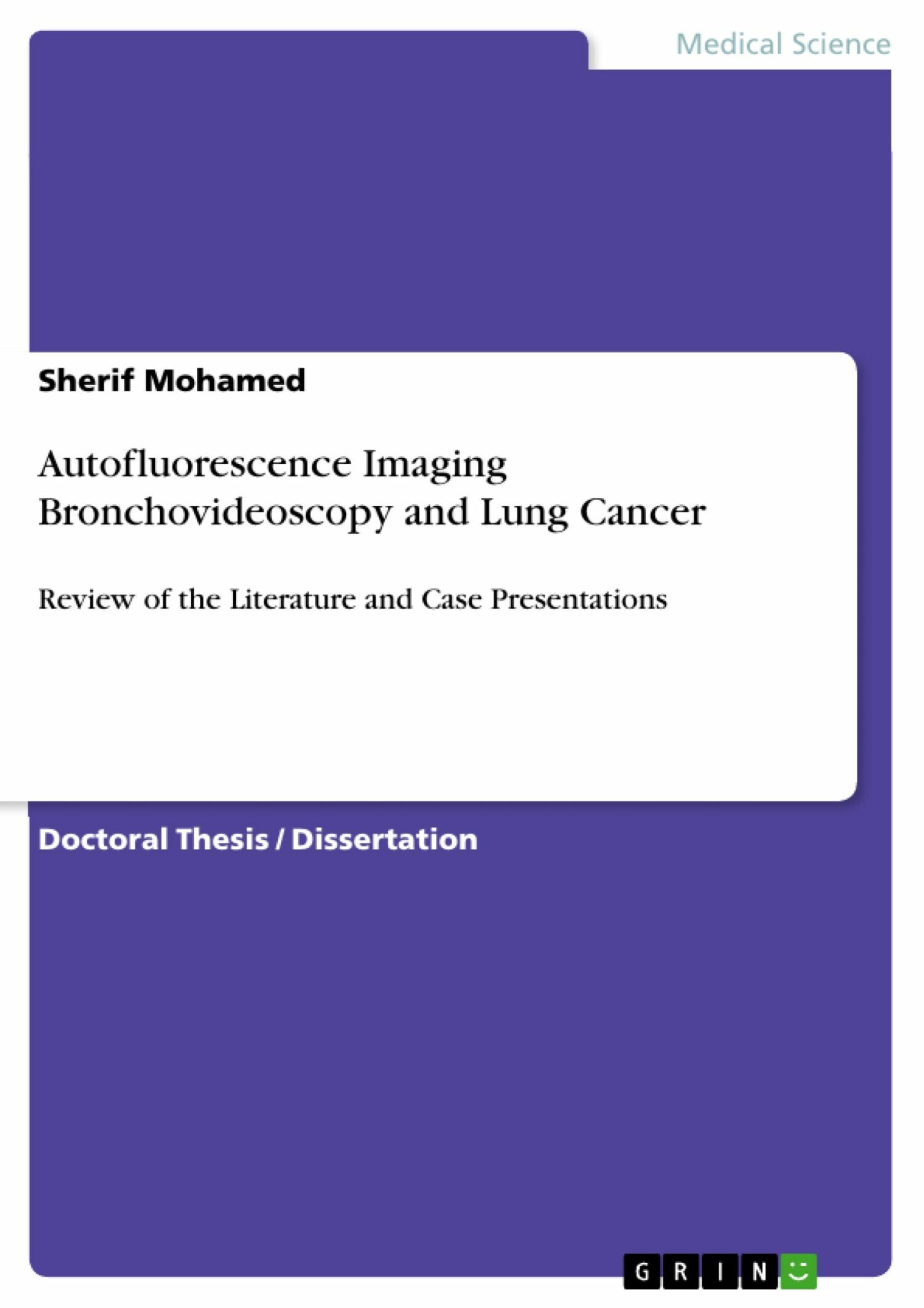Autofluorescence Imaging Bronchovideoscopy and Lung Cancer
Review of the Literature and Case Presentations
| Auflage | 1. Auflage, 2018 |
| Verlag | GRIN Verlag |
| ISBN | 9783668781085 |
Sofort zum Download (Download: PDF)
Produktbeschreibung
Doctoral Thesis / Dissertation from the year 2008 in the subject Medicine - Neoplasms, Oncology, grade: 1.00, , language: English, abstract: Centrally arising squamous cell carcinoma of the airway is thought to develop through multiple stages from squamous metaplasia to dysplasia, followed by carcinoma in situ (CIS), progressing to invasive cancer. It would be ideal to be able to detect and treat preinvasive bronchial lesions before progressing to invasive cancer. Advances in early diagnostic and treatment options have the potential to manage LC while still in an intraepithelial and/or microinvasive stage. WLB is one of the most commonly used diagnostic tools for LC. However, WLB is limited in its ability to detect small intraepithelial and microinvasive preinvasive lesions.AFB was developed to address this limitation by WLB. Indications for AFI examination; (1) Patients with known or suspected LC (2) Patients with abnormal sputum cytology (3) Patients after curative surgery for stage I LC(4) Current or former smokers with symptoms. A total of 74.7% patients had abnormal sputum cytology, 14.3% had known or suspected LC. All patients underwent conventional WLB followed by AFI examination; using the AFI device. Bronchoscopic-guided biopsy specimens were obtained. Sensitivity, specificity, and diagnostic accuracy of WLB versus that of AFI, were 58.3% Vs 88.9%; 46.7% Vs 71.9%; and 53.0% Vs 80.9%. with a very high significant difference (p value < 0.001) in all cases, respectively. The relative sensitivity for AFI/WLB was 1.52; while it was 2.52 for AFI+WLB / WLB alone. For intraepithelial neoplasia lesions; WLB had a sensitivity of 48.3% versus 86.2% for AFI; with the relative sensitivities for AFI/WLB, and AFI+WLB/WLB, were 1.78, and 2.78; respectively. Conclusions: AFI bronchovideoscopy is a promising and effective system, as a new modality for bronchoscopic evaluation of preinvasine bronchial lesions and early lung cancer. AFI was a highly sensitive tool, particularly for detection of intraepithelial neoplasia lesions among high-risk groups. More importantly, AFI has a high specificity, especially in comparison to previous AFB systems.
Associate Professor of Pulmonary Medicine, Assiut University, Assiut, Egypt. Areas of interest: Research in Pulmonary Medicine, Bronchoscopy, Lung Cancer, Molecular biology of Lung Cancer, COPD
Associate Professor of Pulmonary Medicine, Assiut University, Assiut, Egypt. Areas of interest: Research in Pulmonary Medicine, Bronchoscopy, Lung Cancer, Molecular biology of Lung Cancer, COPD
